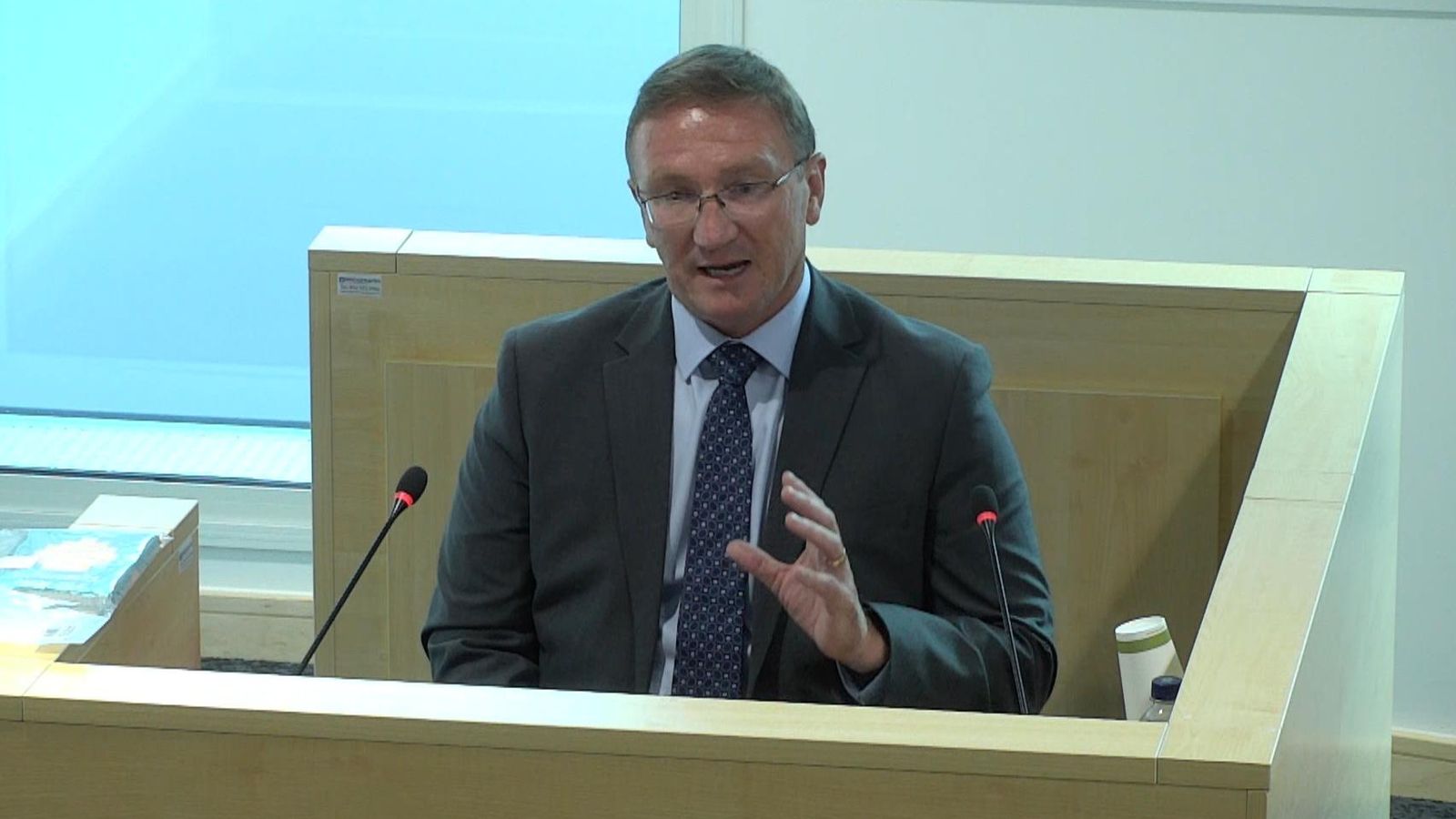A former chief constable of Greater Manchester Police has apologised for a “grave error” in misleading an inquiry into the emergency response to the Manchester Arena bombing.
Ian Hopkins has admitted he had sent a letter to the Kerslake Inquiry wrongly claiming there had been no operational problems on the night of the attack.
The former chief constable also blamed austerity cuts for the failure to update plans to cope with a terrorist attack before the arena explosion.
Twenty-two men, women and children lost their lives in the suicide bombing attack by Salman Abedi at an Ariana Grande concert at the Manchester Arena in May 2017.
The Manchester Arena inquiry has heard that firefighters did not turn up for more than two hours after the attack partly because senior officers could not get through to the police force duty officer.
Police officers and members of the public were forced to carry casualties from the City Room foyer, where the bomb had gone off, on makeshift stretchers made from advertising hoardings.
The force duty officer (FDO) had declared Operation Plato, a contingency plan to deal with a marauding firearms attack, but had not told any of the other emergency services.
The inquiry was told the Greater Manchester Police denied these two facts were true as the Kerslake report was prepared in the months after the attack.
Mr Hopkins resigned in December last year when his force was put in special measures after it was discovered they had failed to record 80,000 reported violent crimes.
Before his evidence started, Mr Hopkins stood and addressed the families of the bereaved, offering his condolences and saying: “I have met many of you in person, and listened to the hopes and dreams that you had for your loved ones and how they were ripped away from you. I also saw your immense grief and it will never leave me.
“I and my colleagues responded on 22 May with the absolute intention of doing our very best in the most challenging of circumstances.
“In many ways we achieved that but I absolutely recognise that we did not always achieve our best.”
The inquiry was shown a letter from Mr Hopkins to Lord Kerslake on 9 March 2018, nine-and-a-half months after the attack, in which he insisted that the “relevant emergency service partners were informed of the declaration of Operation Plato”.
He added that “although the force duty officer was under considerable pressure and managing many demands, he was not overwhelmed”.
He insisted that Greater Manchester Police could “evidence” that the fire and ambulance services and the military were “informed of Plato by various specified routes within a few minutes of its declaration”.
“We would challenge any claim he was overwhelmed as suggested in the report. He was able to complete his key tasks including the declaration of Operation Plato.”
In the letter, drafted by his deputy, Ian Pilling, he added that there had been “no detriment to overall effectiveness of the operation”.
However the inquiry was also shown a debrief questionnaire completed by Dale Sexton, the FDO, in July 2017 in which he said he was not able to contact the fire and ambulance services due to the “demands on the FDO role and limited experience of communications operators”.
Mr Hopkins said the letter was a “grave error” which was “inexplicable” adding: “I can only apologise for that.”
The former chief constable will continue to give evidence next Wednesday when he will be questioned by lawyers for the bereaved families.






















